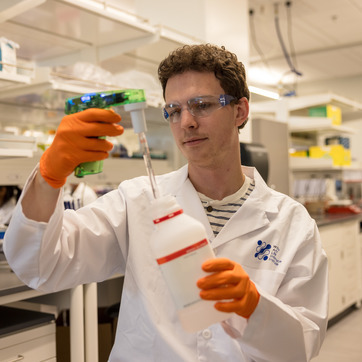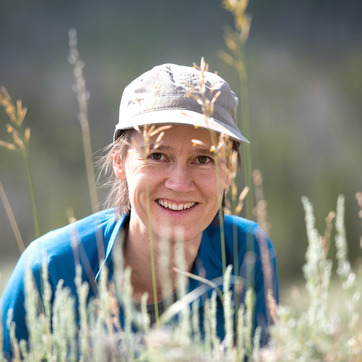Application, Timeline & Course INformation

- Submit your online application here.
- Once an application is complete, the file will be considered for admission and students deemed competitive by the MCLS admissions committee will be asked to participate in phone/video conference interviews. These typically occur two to three weeks after the admission deadline (see below). Please note that inquiries regarding the potential for acceptance will be addressed, but only after the MCLS admission committee meets to review all completed applications, approximately two to three weeks after the admission deadline.
- Applicants who are chosen for admission to the MCLS program will then be asked to complete the final application step through the University of Wyoming Admissions Department. This latter step requires receipt of hard copies of official transcripts and test scores, along with the completion of several additional forms. Students will then be officially notified by the Admissions Department of their acceptance into the MCLS program.
We encourage students to submit applications during the fall semester of each calendar year. For full consideration, applications must be completed by no later than January 1. However, provided that additional slots are still available, we will continue to review new applications through the spring. For any additional questions regarding admissions and application status, please contact mcls@uwyo.edu.
Things to consider when completing the online application:
- As an MCLS applicant, you are NOT required to pay the processing fee and should ignore any solicitation to do so on the application website.
- Your resume/CV should list credentials including education, research, publications, and relevant work experience.
- Your personal statement should describe your motivation for pursuing a Ph.D. in the molecular sciences and your reasons for applying specifically to the MCLS program at the University of Wyoming.
- GREs are strongly recommended but are not strictly mandatory for admission. For most applicants, however, GREs will be an important criterion for judging student potential and are a necessary component of a competitive application. We therefore encourage all applicants to upload GRE transcripts and scores. For international students, TOEFL/IELTS scores are also strongly encouraged.
The MCLS program challenges students to develop a deep mastery of the foundational principles across key fields, including biochemistry and molecular biology. In addition to building a strong scientific base, students will engage in dynamic courses that integrate concepts from laboratory work, seminars, and specialized classes, creating a cohesive understanding of complex topics. A key focus of the program is honing the ability to critically analyze and interpret scientific literature. For students with a strong background in core areas, the program offers flexibility in course requirements. Typically, students will complete formal coursework within one to two years, ensuring a focused and immersive educational experience.
For more details, you can view or download this curriculum document or you can find more information in the University Catalog.
A productive research experience that results in at least several high-quality publications is the benchmark objective for all MCLS students. MCLS students are expected to develop the necessary skills to become creative, thoughtful, critical, and independent scientists. In addition, MCLS students will acquire practical and marketable skills and a functional knowledge base to facilitate future success at the postdoctoral, academic, and industry levels.
Rotations: Creative scientific exploration kicks off immediately with rotations in faculty laboratories
of the students' choosing. Students will carry out four eight-week rotations during
which time they will sample diverse research settings, while learning universally
valuable techniques in the molecular and cellular life sciences. Near the end of the
fourth rotation (early spring), students will choose a lab for future dissertation
research, with the consent of an academic advisor and the curriculum committee.
Dissertation Research: Students will typically carry out the bulk of their research in a single laboratory, although collaborations between two or more laboratories are also feasible and encouraged, if appropriate. Although dissertation research is largely defined by individual effort on the part of the student, a number of mechanisms will aid MCLS students throughout their tenure, including a handpicked dissertation committee, the committee on curriculum, and numerous student and faculty colleagues. As stated above, the primary emphasis will be on helping students towards the completion of well-defined, high-impact projects that result in publications in quality peer-reviewed journals.
A typical MCLS student will adhere to the time course indicated below. Obviously, some variability will exist depending on many factors, the most important of which is the focused efforts of the student themselves.
Year 1:
- Complete the required courses
- Carry out four laboratory rotations
- Choose a laboratory for dissertation research
- Pass a general knowledge assessment exam
- Begin dissertation research
- Choose an appropriate dissertation committee
Year 2:
- Complete additional elective courses
- Continue with dissertation research
- Gain experience as a teaching assistant
- Pass a qualifying exam
- Hold first meeting with the dissertation committee
Years 3-4:
- Continue with dissertation research
- Hold annual meetings with the dissertation committee
- Present research accomplishments before the department
Year 5:
- Complete dissertation research with the consent of advisor and the committee
- Carry out thesis defense
Frequently Asked Questions (FAQs)

Admission to MCLS is highly competitive. However, every application is treated on a case-by-case basis. Thus, great strengths in certain areas may outweigh relative weaknesses in others. Since there is no fee required in the initial application process, we encourage all motivated and qualified students to initiate the application process.
Applicants are strongly encouraged to submit all required materials by no later than January 1st. However, provided that slots are still available, we will continue to review and accept applicants on a rolling basis through the spring. We therefore encourage qualified students to submit applications to MCLS, even if they are late, as indicated above. To inquire as to whether we are still accepting applications after the soft January 1st deadline (for the following fall), you may email mcls@uwyo.edu.
As stated above, we will be reviewing applications on a rolling basis, meeting every few weeks or so to go over the completed applications. We will notify students as soon as a definitive decision has been made regarding their applications. Therefore, the specific time frame for this may vary. Note that only completed applications will be considered.
Domestic students that have been officially accepted to MCLS will be given the opportunity to visit the university and to meet with MCLS faculty and students. If accepted, you will be notified about this opportunity and instructed on how to proceed.
Before that, you can schedule a campus visit or check out our virtual tour!
Course registration occurs after you arrive. Generally, courses do not fill up, so there should be no problem with fulfilling your course requirements. You will also be aided in the selection of appropriate courses by the MCLS steering committee.
For details about the MCLS faculty and links to their research sites, please visit the MCLS faculty and staff page.
Four, with each lasting about eight weeks.
For students in good standing who have completed four successful rotations, a fifth rotation will be allowed. Note, that in some cases, acceptance into certain labs may be quite competitive. Thus, entering students should maintain flexibility and make strong efforts to be productive in their laboratory rotations.
Yes. For one thing we encourage you to prepare ahead by familiarizing yourself the basic concepts you've previously learned in the areas of molecular and cellular biology. Also, foreign students should make strong efforts bone up on their English skills associated with this area. Most textbooks in the area of molecular biology, genetics, and cell biology would likely be appropriate. You can also familiarize yourself with the research of faculty members with whom you are interested in carrying out rotations and download some of their papers to learn more about their systems.
All MCLS students receive a living-wage stipend for the duration of their graduate studies. The annual stipend for MCLS students is $29,016 per year (above the level recommended by the NIH). In addition, tuition, university fees, and student health benefits are also covered by the program.
Yes. Moreover, given the relatively low cost of living in Laramie (compared to many locations), as well as the lack of a state income tax in Wyoming, the stipend goes farther here than in many other places in the U.S.
Yes. However, it can be competitive to get into some of the apartment complexes.
For more information about student housing please visit the UW Housing, Dining, & Residence Life home page.
For many of us who have chosen to live here, it's wonderful. Laramie, however, is probably not a good choice for those who feel they must live in a large metropolitan area. If you enjoy the great outdoors, small college town living, the American west, and don't like to commute long distances to where you work and study, Laramie is hard to beat.
Yes. The university attracts students and faculty from all parts of the world to create a diverse cultural environment. For more information about international students and student organizations please visit the Global Engagement Office International Students and Scholars page.

